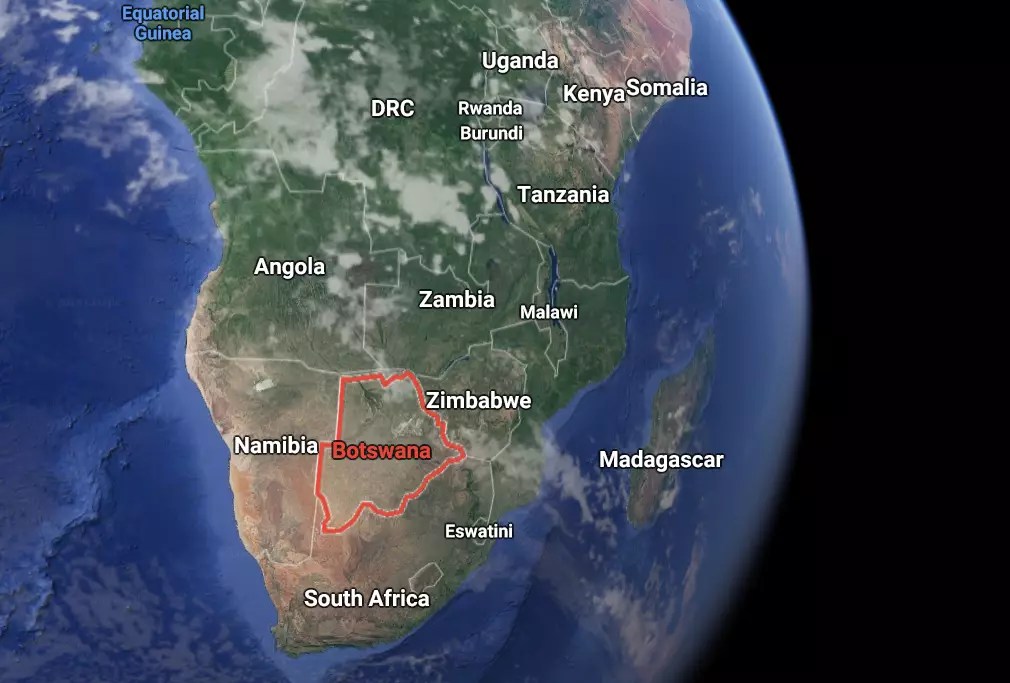
Researchers think they've found the homeland of the whole of humanity - and it turns out we all descend from what is now Botswana.
A new study shows that after looking at genetic information from more than 1,200 people across African populations, they were able to pinpoint that the genes preserved in people's DNA first emerged in the area.
The data was based on 'mitochondrial DNA' (mtDNA) - that which is passed down through females.
Advert
Scientists already largely agreed that modern humans (homo sapiens) came from Africa about 200,000 years but until now, it's not been known whereabouts on the continent we first came from.

The new information contradicts limited evidence based on fossils which suggested our ancestors first emerged in East Africa.
Anthropologist Vanessa Hayes, the senior author of the new paper, said in a press conference that the findings suggested 'everyone walking around today' could trace their mitochondrial DNA back to the area.
Advert
The new research reveals that for 70,000 years, the first humans thrived in the area now known as Botswana, which was originally a lush wetland, south of the Zambezi River.
But then the climate changed and turned what was the largest lake on the continent into what is now the Kalahari Desert.

The change in climate meant that the people who lived there were forced to migrate to other places - that was between 130,000 and 110,000 years ago.
Advert
This is what started the development of genetic, ethnic and then, subsequently, cultural diversity.
However, researchers a couple of years ago claimed to have found a footprint in Crete, Greece, that may fundamentally alter the narrative of early human evolution. It's possible our ancestors were in modern Europe far earlier than we initially believed.
Ever since researchers found fossils of our early ancestors in South and East Africa, in the middle of the 20th century, the history of humanity has largely been set in stone.
But the footprint discovered in Crete dates back 5.7 million years, meaning that humans may have been exploring central Europe for much longer than we knew.
Advert
"This discovery challenges the established narrative of early human evolution head-on and is likely to generate a lot of debate," said Professor Per Ahlberg at the time, who was an author on the study.
"Whether the human origins research community will accept fossil footprints as conclusive evidence of the presence of hominins [part of the family of primates that includes humans] in the Miocene of Crete remains to be seen."
Essentially - the jury is out there and no doubt, this latest study will open up a whole new can of worms on the early history of the human race.
Featured Image Credit: PATopics: Science, Interesting